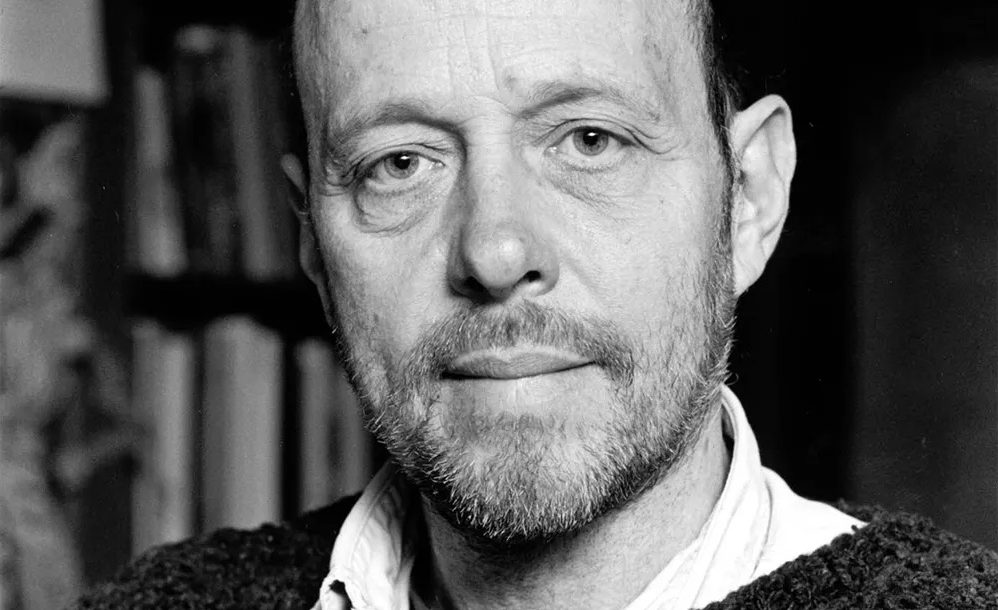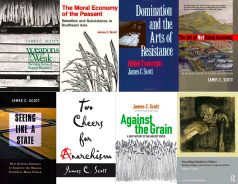With the passing of James C. Scott—or Jim Scott as he was known to me and to many others—Southeast Asian studies has lost a real giant, a major touchstone for the field. But his legacy will live on in many ways and in many forms, not least in the generations of Jim Scott students who went on to become great scholars of the region. He was an extraordinarily generous teacher, mentor, and supervisor, extremely inclusive and encouraging and equitable in his treatment of students, including myself, and he will long be fondly remembered for these qualities and for the many personal kindnesses he showered on us all.
I remember how generously Jim treated me and the late Jeffrey Hadler, both undergraduates at Yale in the mid-late 1980s with embryonic interest in Southeast Asia. He drew us under his wing and into the close-knit group of PhD students working on the region in the Department of Political Science at the time: Paul Hutchcroft, Yoon Hwan Shin, Mark Thompson, and Jeffrey Winters. He invited us along for dinners and to his home, and he let me join special graduate seminars on Southeast Asia and other topics (peasant politics, anarchism), enabling me to get an MA along with my BA and encouraging me onwards to do a PhD.
But this is just a small personal snapshot within a much bigger picture. His former students include the luminaries named above as well as other stellar scholars of Southeast Asia as varied as Benedict Kerkvliet, Pamela McElwee, Eric Tagliacozzo, Meredith Weiss, and many, many others who benefited from his supervision and mentorship over the years.
For these students, and for others who met him and read his work, Jim Scott served as a source of inspiration, if not idolisation, in terms of both his scholarship and his persona. He embodied a way of being that combined humility and homespun wisdom with a unique mix of wide-ranging interdisciplinary erudition, effortlessly flowing prose, hands-on earthiness and approachability, and a mirthful irreverence towards Ivy League and other academic pretensions and forms of self-importance. His students in various ways and to varying degrees have carried on this great but “little” tradition over the years and transmitted it to successive generations of students of the region. Through these paternal lineages, Jim’s spirit will continue to live on for many years to come.
But for Southeast Asian studies as a whole, the vast corpus of Jim Scott’s written work has also left lasting legacies beyond what he imparted to those who had the privilege and the pleasure to know him in person as well as on the page. Southeast Asian studies, it is worth noting, is a field which is exceptionally fragmented and pluralistic, given the tremendous diversity of the region and the multiplicity of disciplines represented. Southeast Asianist scholars are often narrowly focused on disparate questions and concerns in discrete settings within different countries, and in different historical periods as well. Southeast Asianist social scientists—most notoriously political scientists, but anthropologists as well—tend to have appetites and ambitions for comparative analytical frameworks and theoretical connections extending far beyond the region. They often have only limited interest in countries and disciplines adjacent to those in which they are immersed. At the same time, Southeast Asianist historians tend to be resistant to facile generalisations and comparisons within and across the region and to remain focused on specific countries and periods and themes.
Against this backdrop, the field of Southeast Asian studies has tended towards the kind of “petit bourgeois individualism” for which, as Jim Scott often noted, Marx and Lenin derided the peasantry. Perhaps it was no coincidence that Jim ended up in Southeast Asian studies, given these distinctly peasant-like features of the field, even as he preferred intellectual nomadism and swidden (slash-and-burn cultivation) to sedentarism and ploughing the same furrow, unlike many other scholars of the region.
Yet over the years, the accumulated body of Jim Scott’s scholarship has provided not only a shared point of reference but also a guiding spirit which has helped to sustain and to structure, however loosely, a more collective sense of identity among Southeast Asianists as a community, whether imagined or otherwise. Like Clifford Geertz from the 1960s well into the 1980s, and alongside Benedict Anderson from the 1980s onwards, Jim Scott’s books and his ideas have been read and re-read, reproduced and reworked, by Southeast Asianists across a wide range of disciplines over the past five decades, as was amply well explored in a special themed section of the May 2021 issue of the Journal of Asian Studies.
The impact of Jim Scott’s work on Southeast Asian studies extends not only over a series of eye-opening, path-breaking books and across multiple disciplines, but beyond specific arguments and analytical frameworks which he elaborated in his work over the years. The very nature of the field of Southeast Asian studies, it could be argued, bears traces of Jim’s enduring influence. Thanks to The Moral Economy of the Peasant, for example, Southeast Asianists have come to question the Whiggish historiography of the region, looking back on what Karl Polanyi termed the Great Transformation—and Karl Marx called primitive accumulation—like Walter Benjamin’s Angel of History, with an ambivalent if not tragic sense of what is otherwise understood as “progress”. Thanks to this repurposing of E.P. Thompson’s notion of a “moral economy”, moreover, Southeast Asianists have an exemplary model of how to combine fine-grained analysis of material circumstances with close, careful attention to lived experience and “ideology”.
Thanks to Weapons of the Weak, Southeast Asianists have come to question conventional, conservative understandings of “great man” politics in the region and claims of the seamless ideological hegemony of entrenched oligarchies and authoritarian regimes. Instead, they have come to understand the dynamics of power relations and the drivers of political change in a much less top-down, elite-centred fashion. They have come to pay close attention to molecular modes and motors of political transformation, through shifts in the terms of patron-client relations, through everyday forms of resistance, and through the diverse forms and forces of infra- and micro-politics.
James C. Scott: against the myopic study of politics
“To become good and dynamic, political science must be broadened and cooperate with, among others, anthropologists, sociologists, and historians”
In many ways, thanks to Jim Scott, the field of Southeast Asian studies has come to resemble the region as he saw and celebrated it, warts and all. A region—and a field of study—in which the structural logics of capitalism and the modern state are met with critical forms of analysis and creative forms of resistance. A region—and a field of study—in which authoritarian regimes and oligarchical democracies remain entrenched amidst what the anthropologist James Holston, following Jim Scott in the study of infra- and micro-politics, has termed “insurgent citizenship”. A region—and a field of study—in which corrupt politicians and corporate tycoons deserve to be exposed and opposed, even as the everyday struggles of working people merit scholarly treatment and substantive support.
A region—and a field of study—transformed by successive waves of what today we call “globalisation”, in which accelerating flows of capital and commodities have been accompanied by disruption, dispossession, and displacement of millions within and beyond the region, including through mass labour migration and human trafficking. A region—and a field of study—in which Big Tech and Big Data appear to be ever more ubiquitous and all-powerful, and in which the practical knowledge (or, as Jim termed it, mētis) of marginalised peoples—and increasingly marginal scholars—is under increasing threat. But also a region—and a field of study—in which the stubborn (or rather steadfast) endurance, ingenuity, and “moral economy” of subaltern classes still command our empathetic attention. A region—and a field of study—in which the margins and the marginalised are as interesting and important as the centres and pinnacles of wealth and power.
So today and for years to come, let us try to honour Jim Scott through our scholarship and our study of Southeast Asia, and through the spirit in which we engage with our students, our colleagues, and all those whom we encounter across the region. As we plough our individual furrows and as we slash-and-burn and shift to new fields of inquiry within and beyond Southeast Asia, let us try to proceed with the humility, empathy, curiosity, and playful irreverence with which Jim Scott gave and shared so generously of himself over the long years of his extraordinarily productive life as a scholar of the region and so much more.
This post is published in conjunction with the LSE Southeast Asia Blog.
 Facebook
Facebook  Twitter
Twitter  Soundcloud
Soundcloud  Youtube
Youtube  Rss
Rss 






